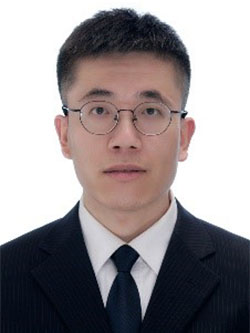
Associate Prof. Yihang Li
Academy of Advanced Interdisciplinary Research, Xidian University
liyihang@xidian.edu.cn
Yihang Li is an associate professor in the Academy of Advanced Interdisciplinary Research at Xidian University. He received his B.S. in Metallurgical Engineering from Central South University (CSU) in 2014 and PhD in Materials Science from University of Science and Technology of China (USTC) in 2019. After working as a postdoctoral fellow at Shenzhen University (SZU), he joined the Xidian University (XDU) as an associate professor since October 2021. His research interests are the Solid Oxide Fuel/Electrolysis Cells (SOFC/SOEC) and gas sensors, including synthesis & characterization of novel perovskite oxides and carbon dioxide reduction process at the surface and interface. He has written a book chapter (Intermediate Temperature Solid Oxide Fuel Cells, Elsevier, 2020, pp 195-261) and published over 30 peer-reviewed papers, e.g., Energy & Environment Science, Advanced Energy Materials, Journal of Materials Chemistry A, Journal of Power Sources, ACS Sustainable Chemistry & Engineering, and International Journal of Hydrogen Energy. He won the Qiushi Scholarship and National Scholarship for Graduate Student from USTC. He is a professional member of the Chemical Industry and Engineering Society of China (CIESC).
Title:Electrochemical CO2-to-CO conversion in solid oxide electrolysis cells
Abstract: Depletion of natural energy resources and environmental deterioration are among the biggest challenges for sustainable development. Both issues are resulted from the unsustainable utilization of fossil fuels accompanied by the release of greenhouse gas CO2. In this regard, more and more attention has been focused on the processes of CO2 conversion to valuable fuels powered by nuclear enrgy or renewable electricity sources (e.g., solar, wind, tidal and hydropower), which could not only help to reduce CO2 emissions, but also mitigate the energy crisis. Solid oxide electrolysis cells (SOECs) can efficiently convert the greenhouse-gas CO2 to valuable chemicals. For example, CO2 is electrochemically reduced to CO at the fuel electrode (cathode) while releasing O2 at the oxygen electrode (anode). SOECs are considered as not only a promising technology base for sustainable energy systems but also helpful to achieve the goal of carbon-neutral cycling. This talk will present our recent advances in designing mixed conducting perovskite oxide materials as fuel electrodes for electrochemical CO2-to-CO conversion in SOECs. In particular, we proposed to investigate surface oxygen exchange (kchem) of CO2-RR kinetics using a new theoretical method based on the electrical conductivity relaxation (ECR) technique.